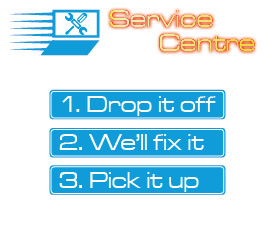hacklink al hacklink nedir hacklink panel hacklink satış hacklink seo buy backlinks backlink satış slot gacor sitem kaçıncı sırada google sıra bulucu hacklink backlink2 backlink satış da pa checker seo da pa checker wso shell wso shell c99 shell r57 shell r57 shell hacklink satış seo sorgulama seo sorgula comment backlink yorum backlink botu c99 shell r57 shell hacklink satın al backlink sorgulama r57 shell k2ll33d shell wso shell whmcs killer r57 shell c99 shell k2ll33d shell marijuana Shell elektrik mekanik havalandırma sanayi elektrik tesisatcısı iş yeri elektriği tesisatı ofis elektrik tesisatı laboratuvar elektrik tesisatı fancoil tesisatı havalandırma tesisatı ev tadilat işleri hacklink seo comment backlink buy backlinks hacklink panel wso shell whmcs killer bypass shell c99 shell k2ll33d shell IndoXploit shell Gel4y Mini Shell Config Grabber Symlink Shell Spammer Tools backlink satış r57 shell hacklink satış backlink satış backlink panel buy backlinks buy backlink comment backlink backlink panel backlink satış backlink panel backlink seo eskişehir oto çekici eskişehir oto kurtarıcı eskişehir yol yardımı eskişehir yol yardımı bursa oto çekici backlink panel istanbul oto çekici istanbul oto kurtarıcı bursa oto kurtarıcı backlink panel backlink satış backlink panel 520 Kalpli Sigara captain black Chapman Sigara harvest sigara keno club sigara marvel sigara Senator sigara harvest sigara al capone sigara Backwoods Puro Cafe Creme Puro Captain Black Puro harvest marvel puro Meharis Puro Montecristo Puro Gurkha Sampler Pack Toscanello Puro Toscanello Blu Anice Anason Toscanello Cappuccino Toscanello Cioccolato Çikolata Toscanello Grappa Toscanello Rosso Caffe Toscanello Macchiato Toscanello Limoncello Toscanello Rubino Toscanello Vanilya 520 kalpli sigara captain black Cavallo sigara Colts Deluxe Vanilla Sigara Colts Red Deluxe Vişne Aromalı Sigara Davidoff Gold Slender Davidoff Magnum Classic Sigara Davidoff White Superslims Sigara Djarum Black Esse Change Mentollü Sigara Esse Change Super Slim Grape Sigara Esse Superslim Aura Green sigara Esse Süperslim Menthol sigara Karelia sigara keno club sigara Keno Club Apple Mint Click Sigara Keno Club Blueberry Mint Click Sigara Keno Club Grape Click Superslim Sigara Keno Club Gum Mint Click Sigara Keno Club Orange Click Sigara kent sigara Lucky Strike Marlboro Double Fusion Marlboro Edge Slim Sigara Marlboro Double Fusion Summer Marlboro Gold Sigara Marlboro Red Kırmızı Sigara Marlboro Lights Gold Sigara Marlboro Shuffle Sigara Marlboro Silver Blue Sigara Marlboro Touch Aqua Menthol Marlboro Touch Blue Sigara Marlboro Touch Gray Sigara Marlboro Touch Less Smell Sigara Marlboro Touch Mix Slender Sigara Marlboro Winter Shuffle Sigara Marlboro White Sigara Marlboro Vista Blossom Fusion Sigara marvel sigara milano sigara Parliament Parliament Night Blue Sigara Parliament Reserve Sigara Parliament Aqua Blue Sigara Senator sigara senator şarap aromalı sigara Vogue sigara Winston sigara Yeşil Peri Jack Daniels ballı viski Chivas Regal Viski Olmeca Tekila Votka Fiyatları HEETS Amber Selection IQOS Terea Amber IQOS Terea Bronze Winston Slender Blue Sigara Sobranie Cocktail Renkli Sigara Toscanello Puro Davidoff Sigara djarum black Marlboro Double Fusion Summer Karpuzlu Marlboro Winter Shuffle Sigara Marlboro Double Fusion Cavallo Sigara Marlboro Shuffle Marlboro Edge Sunset Superslim Sigara kavunlu Marlboro Touch Gray Marlboro Luna Shuffle Sigara Esse Sigara Kent Mix aroma satın al Kent D Range Blue Kent Switch Winston Slender Blue Winston Dark Blue Parliament Night Blue Parliament Aqua Blue Parliament Reserve Lucky Strike Parliament Midnight Blue Sigara 520 kalpli sigara Sobranie Sigara Al Capone Sigara oris sigara Neo sigara Oscar Sigara mond sigara Milano Sigara IQOS Terea Sigara Ome Sigara Lark Sigara Rothmans Sigara Pall Mall Sigara Muratti Sigara Dunhill Sigara Lm Sigara Viceroy Sigara Camel Sigara More Sigara Heets Sigara Vogue Frisson sigara Black Devil Sigara Eve sigara Rockets sigara Colts Sigara Philip Morris sigara Bond Sigara United Sigara Indigo Sigara American Spirit Sigara Captain Black Sweet Aromatic Puro Captain Black Sweet Grape Puro Captain Black Sweet Cherry Puro Phillies Blunt Titan Phillies Blunt Honey Ballı Puro Toscanello Rosso Caffe Meharis Red Orient Filter italico Ammezzato Honey Puro Backwoods HoneyBerry ıslak puro Phillies Blunt Chocolate Çikolata Puro https://temizsigara.com/toscanello-cappuccino-210 Toscanello Vanilya Meharis Ecuador Meharis Brasil Captain Black Dark Crema Puro Cafe Creme Beige Sigarillo djarum black cherry Marlboro Double Fusion marvel sigara djarum black Marlboro Double Fusion Summer Sigara Karpuz ve Mentol Aromalı Esse Change Double Applemint Sigara Elma ve Mango Aromalı Marlboro Sol Shuffle Sigara Marlboro Vista Double Fusion Summer Oscar Nano Silver Marlboro Vista Double Fusion Summer Marlboro Sol Shuffle Sigara Oscar Nano Silver Parliament Blossom Breeze Sigara Elma Çiçeği Aromalı Djarum Black Purpleboost Sigara Kiraz Karanfil Aromalı Harvest Sweet Cherry Sigara Vişne Aromalı Camacho Triple Maduro Puro Balmoral Dominican Collection puro harvest sigara Absnithe Yeşil Peri Davidoff Aniversario Special R Puro sigara satın al 520 kalpli sigara captain black Davidoff Green Mixture İthal Pipo Tütünü 50 Gr Teneke Harvest Blueberry Crush Sigara AJ Fernandez Bellas Artes Gordo Puro AJ Fernandez Especial New World Puro Al Capone Flame Sigara Alec Bradley Black Market Esteli Gordo Puro Alec Bradley Black Market Esteli Robusto Puro Backwoods Aromatic ıslak puro Marlboro Shuffle Marlboro Sol Shuffle Sigara Tropikal Meyve Mentol Marlboro Vista Blossom Fusion Sigara Kiraz çiçeği ve mentol Marlboro Vista Double Fusion Summer Sigara Karpuz ve Mentol Marlboro Winter Shuffle Sigara mentol ve Kış Meyveleri Harvest Blueberry Crush Sigara Yabanmersini Aromalı Harvest Menthol Crush Sigara Harvest Sweet Coffe Sigara Kahve Aromalı Harvest Sweet Vanilla Sigara vanilya Aromalı Manchester Blue Mist Fusion Sigara yabanmersini ve Nane Manchester Amber Crush Fusion Sigara elma ve Nane Manchester Double Drive Sigara Manchester Nano Wild Green Slim Sigara Mentol Nane Aromalı Marlboro Double Fusion sigara satin al Davidoff Aniversario Entreacto Puro sigara satin al Cafe Creme Arome Sigarillo Camacho Liberty 2020 Puro Djarum Vanilla Sigara Djarum Black Menthol Sigara Eve SunFlower Extra Long Sigara Harvest Sweet Coconut Sigara Hindistancevizi Aromalı Davidoff Millennium Blend Robusto Puro akşap kutu Davidoff Nicaragua Box Pressed Puro Bolivar Royal Coronas Puro Cohiba Club 20 Sigarillo Cohiba Siglo 6 Puro Backwoods Honey ıslak puro Bal Aromalı djarum black Cohiba Medio Siglo Tubos Puro Davidoff Grand Cru Toro Puro Davidoff Purple Green Sigara Davidoff Magnum Gold Sigara George Karelias And Sons Smoother Taste Sigara Chapman Cherry Tatlı Kiraz Aromalı Sigara Captain Black Cherise Puro Cafe Creme Red Filter Sigarillo American Spirit Blue Natural Sigara American Spirit Yellow Sigara Ataşehir escort Bostancı Escort Göztepe Escort Kadıköy Escort İstanbul Escort Anadolu Yakası Escort Üsküdar Escort Şerifali Escort İstanbul Escort Ümraniye Escort Anadolu Yakası Escort Pendik Escort Kurtköy Escort Maltepe Escort Ümraniye Escort İstanbul Escort Anadolu Yakası Escort Bostancı Escort Erenköy Escort Göztepe Escort İstanbul Escort Anadolu Yakası Escort Kartal Escort Pendik Escort Göztepe Escort Göztepe Escort Maltepe Escort İstanbul Escort Anadolu Yakası Escort Kadıköy Escort Bostancı Escort Ümraniye Escort İstanbul Escort Anadolu Yakası Escort Pendik Escort Kurtköy Escort Maltepe Escort İstanbul Escort İstanbul Escort Anadolu Yakası Escort Kartal Escort İstanbul Escort Bayan Escort Eskort Escort İstanbul İstanbul Escort Bayan Anadolu Yakası Escort İstanbul Escort Escort Bayan Eskort Bayan Eskort Anadolu Yakası Escort Pendik Escort Kartal Escort Tuzla Escort Anadolu Yakası Escort Anadolu Yakası Escort İstanbul Escort Kadıköy Escort Ataşehir Escort Bostancı Escort Ümraniye Escort Anadolu Yakası Escort Anadolu Yakası Escort Avrupa Yakası Escort İstanbul Escort Bostancı Escort Kartal Escort Ümraniye Escort Maltepe Escort Anadolu Yakası Escort İstanbul Escort Ataşehir Escort Acıbadem Escort İstanbul Escort Anadolu Yakası Escort İstanbul Escort Kurtköy Escort Pendik Escort Maltepe Escort İstanbul Escort Anadolu Yakası Escort Ataşehir Escort Kadıköy Escort Ümraniye Escort Maltepe Escort Anadolu Yakası Escort Ümraniye Escort Kadıköy Escort Ataşehir Escort Maltepe Escort Anadolu Yakası Escort Ataşehir Escort Şerifali Escort Göztepe Escort Ümraniye Escort Ataşehir Escort Kadıköy Escort Bostancı Escort Ataşehir Escort Kadıköy Escort Bostancı Escort Anadolu Yakası Escort Pendik Escort Kurtköy Escort Kartal Escort Yakacık Escort Kadıköy Escort Bostancı Escort Ümraniye Escort Ataşehir Escort Anadolu Yakası Escort Kadıköy Escort İstanbul Escort Ataşehir Escort Anadolu Yakası Escort Anadolu Yakası Escort Kadıköy Escort Bostancı Escort Ümraniye Escort Ataşehir Escort Anadolu Yakası Escort Kartal Escort Maltepe Escort Atalar Escort Cevizli Escort Anadolu Yakası Escort Kartal Escort Maltepe Escort Maltepe Escort Kurtköy Escort Pendik Escort Mutlukent Escort Tuzla Escort Gebze Escort Aydınlı Escort Pendik Escort Kurtköy Escort Ümraniye Escort Bostancı Escort Anadolu Yakası Escort Pendik Escort Kurtköy Escort Maltepe Escort Tuzla Escort Anadolu Yakası Escort izmir escort konya escort mersin escort Viagra sipariş sitesi cialis fiyat Cialis fiyat 2023 Cialis fiyatları Cialis 100 mg 30 tablet Cialis satış sitesi Cialis fiyat Cialis sipariş sitesi Cialis 100 mg Cialis 100 mg 30 tablet Cialis 20 mg Cialis 100 mg satış Cialis 20 mg Cialis 20 mg 30 tablet Cialis 20 mg fiyat Cialis 100 mg fiyatı Cialis 5 mg Cialis 5 mg 28 tablet Cialis 5 mg fiyat Viagra satış sitesi Cialis 100 mg jel Cialis 20 mg jel Viagra fiyat Cialis sipariş sitesi Viagra fiyat 2023 Viagra satış sitesi Viagra 100 mg Viagra 100 mg 30 tablet Viagra fiyat viagra 100 mg fiyat 4'lü Viagra krem Cialis satış sitesi Cialis 20 mg 30 tablet Cialis 20 mg satış Cialis 5 mg Cialis 5 mg 28 tablet Cialis 5 mg fiyatları Cialis 100 mg jel Viagra 100 mg bedava bonus canlı sohbet hattı sohbet hatları mersin escort mersin escort bayan yasal bahis siteleri güvenilir casino siteleri sohbet hattı ankara escort escort sohbet hattı sohbet hattı escort escort eryaman escort casino siteleri casino siteleri bahis sincan escort bursa escort bayan escort nevşehir haber cialis 5 mg fiyat viagra price cialis fiyat viagra fiyatları cialis 100 mg fiyat 2024 cialis 100 mg eczane satış fiyatı viagra 100 mg 30 tablet. fiyati Cinsel Güç Artırıcı İlaçlar Sağlık Bakanlığı Onaylı Sertleşmeye İyi Gelen İlaçlar Eczane eczanelerde satılan cinsel gücü arttıran ilaçlar cialis fiyatı Eczanede Satılan Cinsel Gücü Artıran İlaçlar viagra fiyat Sağlık Bakanlığı onaylı eczanelerde satilan sertleştiriciler https://shop.eczanecinizonline.com/ kürtaj nedir erken boşalma sorunu online sağlık haberleri https://www.libidom.org/ klg viagra fiyatları klg hap sağlık bakanlığı onaylı viagra satış https://www.saglikyolu.net/ https://www.sagliksende.com/ cialis fiyat cialis öldürür mü cialis öldürür mü viagra satın al Sağlık Bakanlığı onaylı eczanelerde satilan sertleştiriciler Şirinevler escort Şişli escort Beylikdüzü escort Halkalı escort Bahçeşehir escort Avcılar escort Avcılar escort Ataköy escort Bakırköy escort Beşiktaş escort Etiler escort Mecidiyeköy escort Taksim escort istanbul escort Eryaman escort etlik escort keçiören escort Sincan escort Eryaman escort Kızılay escort Çankaya escort Etimesgut escort ankara escort ankara escort ankara escort ankara escort Çankaya escort Rus escort Sincan escort Eryaman escort keçiören escort Travesti İstanbul Travesti Ankara Travesti İzmir Travesti Ankara Travesti Antalya Travesti bursa tavesti Konya Travesti istanbul escort bayan istanbul travesti İzmir Travesti Ankara Travesti Antalya Travesti bursa tavesti Konya Travesti Travesti Aksaray Escort Kayaşehir Escort Fatih escort Eyüp escort Fındıkzade escort Fulya escort Gaziosmanpaşa escort Esenyurt Escort Beylikdüzü Escort Halkalı Escort Bahçeşehir Escort Beylikdüzü escort Avrupa Yakası Escort Bahçelievler Escort İkitelli escort Kağıthane Escort Sefaköy escort Topkapı Escort Escort bayan Sex Hikayeleri Merter Escort Çapa Escort Silivri Escort escort istanbul Antalya Escort Kütahya escort Kütahya escort Manisa escort Kars escort Yenibosna escort Escort bayan Escort bayan Escort bayan Escort bayan Escort bayan Escort bayan Escort bayan Escort bayan Escort bayan Escort bayan Escort bayan Escort bayan Escort bayan Escort bayan Escort bayan Escort bayan Escort bayan Escort bayan Escort bayan Escort bayan Escort bayan Escort bayan Escort bayan Escort bayan Escort bayan Sakarya escort Küçükköy Escort Bomanti Escort Adana escort Adana escort Afyon escort Afyon escort Alanya escort Antalya escort Artvin escort Beylikdüzü escort Beylikdüzü escort Beylikdüzü escort Beylikdüzü escort Bodrum escort Burdur escort Burdur escort Burdur escort Bolu escort Bolu escort Bolu escort Bolu escort Bolu escort Bursa escort Bursa escort Çanakkale escort Çanakkale escort Çeşme escort Çeşme escort Çeşme escort Didim escort Diyarbakır escort Diyarbakır escort Edirne escort Edirne escort Eskişehir escort Eskişehir escort Antep escort Gaziantep escort Gaziantep escort Giresun escort Giresun escort Gümüşhane escort Hatay escort Hatay escort Elazığ escort Erzincan escort Erzincan escort Erzurum escort Erzurum escort Bodrum escort Bursa escort Isparta escort Isparta escort Kastamonu escort Kastamonu escort Kayseri escort Kayseri escort Kıbrıs escort Kıbrıs escort Kocaeli escort Konya escort Kuşadası escort Kütahya escort Malatya escort Malatya escort Manisa escort Mardin escort Mardin escort Marmaris escort Mersin escort Nevşehir escort Nevşehir escort Niğde escort Niğde escort Ordu escort Ordu escort Rize escort Rize escort Sakarya escort Samsun escort Samsun escort Şanlıurfa escort Şanlıurfa escort Sinop escort Sinop escort Sivas escort Sivas escort Tekirdağ escort Tekirdağ escort Trabzon escort Trabzon escort Uşak escort Van escort Van escort Yalova escort Yalova escort Yozgat escort esenyurt escort umraniyen escort kartal escort tuzla escort pendik escort kurtkoy escort caglayan escort pendik escort tuzla escort pendik escort moda escort kadikoy escort mecidiyekoy escort esenyurtescort.org kurtkoy escort bodrum escort bursa escort madiagirl.net kartalescort.net istanbul eskort istanbul eskort bayan istanbul escorts istanbul escort bayan escort istanbul istanbulescort kocaeli escort kozyatagi escort kucukcekmece escort kumkapi escort mahmutbey escort maltepe escort mecidiyekoy escort merter escort okmeydani escort ortakoy escort rami escort riva escort samatya escort sancaktepe escort sariyer escort sefakoy escort selimpasa escort serifali escort sile escort silivri escort sirinevler escort sirkeci escort sishane escort sultanahmet escort sultanbeyli escort sultangazi escort sultangazi escort taksim escort tarabya escort sakarya escort izmir escort kocaeli escort eskişehir escort konya escort kayseri escort antalya escort mersin escort samsun escort adana escort bursa escort ankara escort aydın escort çanakkale escort diyarbakır escort gaziantep escort malatya escort mardin escort muğla escort trabzon escort urfa escort aksaray escort yalova escort kartal escort pendik escort ümraniye escort maltepe escort avcılar escort şişli escort bakırköy escort kadıköy escort ataşehir escort beşiktaş escort üsküdar escort esenyurt escort küçükçekmece escort bağcılar escort bahçelievler escort sultangazi escort başakşehir escort gaziosmanpaşa escort sancaktepe escort kağıthane escort esenler escort eyüpsultan escort beylikdüzü escort fatih escort sultanbeyli escort sarıyer escort arnavutköy escort çekmeköy escort zeytinburnu escort tuzla escort güngören escort büyükçekmece escort silivri escort taksim escort bayrampaşa escort beykoz escort beyoğlu escort afyon escort ağrı escort balıkesir escort denizli escort erzurum escort van escort kütahya escort gebze escort manisa escort nevşehir escort ordu escort rize escort sivas escort tekirdağ escort tunceli escort yozgat escort ısparta escort edirne escort elazığ escort tokat escort bitlis escort izmit escort bodrum escort marmaris escort fethiye escort kuşadası escort didim escort çeşme escort buca escort alsancak escort karşıyaka escort bornova escort jeligra cialis 100 mg cialis 5 mg cialis 20 mg cialis nedir cialis fiyat cialis cialis delay sprey novagra viagra kamagra 100 mg kamagra jel viagra fiyat cialis 5 mg fiyat viagra 100 mg afilta 20 mg viagra 100 mg nedir combo 100 mg degra 100 mg flynta 20 mg hardcis 20 mg lex 20 mg fiyat lifta 20 mg fiyat orcafil 20 mg orcafil 5 mg priligy 30 mg sildegra sinegra 100 mg vigrande 100 mg zayon sildegra 100 mg fiyat vigrande nedir cialis 20 mg fiyat orcafil 5 mg viagra 100 mg kamagra jel viga 15000 cialis jel viagra fiyatlari deneme bonusu bahis siteleri casino siteleri bonus veren siteler bonus veren siteler bonus bonus veren siteler maç özetleri casino siteleri bahis siteleri bahis siteleri bahis siteleri bahis siteleri Jojobet Jojobet Jojobet casibom casibom Jojobet Jojobet test test Casibom Casibom Jojobet viagra sipariş viagra eczane fiyatı şişme bebek manken realistik şişme kadın cialis fiyatı eczane penis sertleştirici haplar cialis satış fiyatı viagra satış fiyatı erken boşalmayı geciktirici haplar boşalmayı geciktirici kremler geciktirici sprey eczane kadın cinsel istek ürünleri kadın azdırıcı damla çeşitleri kadınlarda cinsel isteği artıran ilaçlar penis büyütücü haplar penis büyütücü kremler cinsel güç arttırıcı macun cinsel güç arttırıcı macun fiyatı cinsel gücü artıran kuvvet macunu yapay kızlık zarı fiyatı sertleştirici hap çeşitleri orijinal cialis fiyatı eczane viagra eczane satış fiyatı bayan cinsel istek arttırıcılar viagra eczane satış fiyatı lifta fiyatı eczane penis sertleştirici hap vega 100 mg fiyatı penis sertleştirici hap kamagra jel kamagra jel fiyatı cialis satış fiyatı cinsel gücü artırıcı haplar geç boşaltan haplar sertleştirici ilaçlar ve fiyatları cialis eczane fiyatı en ucuz viagra fiyatı erken boşalmayı geciktirici ilaçlar cialis sipariş eczane viagra satış eczane sertleşme sağlayıcı ilaçlar realistik şişme bebekler şişme bebek manken en ucuz realistik manken şişme bayanlar şişme kadın realistik sertleştirici hap çeşitleri eczanede cialis fiyatı eczanede satılan viagra çeşitleri erkek penis sertleştirici hapları eczane cialis eczane fiyatı ne kadar viagra eczane fiyatı erken boşalmayı geciktirici ilaçlar erken boşalmayı geciktiren kremler erken boşalmayı geciktirici spreyler penis büyütücü kremler cialis 100 mg orijinal cialis eczane fiyatı viagra fiyatı satış eczanede satılan penis sertleştirici ilaç isimleri en iyi cinsel performans ilaçları cinsel güç artırıcı penis sertleştirici cialis fiyatı ve çeşitleri eczanede satılan viagra fiyatı bayan istek artırıcılar erken boşalmayı geciktirici haplar ve ilaçlar geciktirici kremler geciktirici sprey çeşitleri penis pompaları bayan istek arttırıcılar bayan istek arttırıcı damla eczanede satılan cinsel gücü artıran ilaç bayan azdırıcı hap en iyi cinsel performans arttırıcı ilaç cialis eczane fiyatı orijinal viagra fiyat boşalmayı geciktirici ilaçlar erken boşalmayı geciktirici ilaç çeşitleri en iyi geciktirici sprey çeşitleri geciktirici krem markaları penis büyütücüler penis büyütücü hap penis büyütücü krem penis sertleştirici haplar ve çeşitleri cialis eczane fiyatı ve satışı viagra eczane satış fiyatı ve çeşitleri bayan azdırıcı ürünler kadın azdırıcı haplar bayan azdırıcı damlalar ve çeşitleri erken boşalmayı geciktirici ürünler erken boşalma geciktirici ilaçlar erken boşalmayı geciktirici kremler geciktirici sprey markaları ve çeşitleri penis büyütücüler sertleşmeye iyi gelen haplar cialis satış fiyatı viagra satış fiyatı penis sertleştirici ilaçlar sertleştirici ereksiyon hapları eczane cialis satış fiyatı eczane viagra satış fiyatı penis sertleştirici cinsel haplar cialis fiyatı eczane satışı viagra fiyatı eczane satışı geciktiriciler erken boşalma ürünleri bayan azdırıcılar istek arttırıcılar sertleştirici haplar eczane cinsel cialis eczane satış fiyatı viagra eczane satış fiyatı geciktirici haplar kremler spreyler bayan azdırıcı damlalar haplar penis büyütücü haplar kremler eczane ereksiyon ilaçları sertleştirici haplar Bursa Escort İzmir Escort Marmaris Escort Mersin Escort Elazığ Escort Antalya Escort Alanya Escort Çanakkale Escort Trabzon Escort Kayseri Escort Fethiye Escort Bodrum Escort Çeşme Escort Kuşadası Escort Uşak Escort Denizli Escort Konya Escort Kemer Escort Konyaaltı Escort Muratpaşa Escort Esenyurt Escort Küçükçekmece Escort Bağcılar Escort Çorlu Escort Çerkezköy Escort Diyarbakır Escort Bornova Escort Karşıyaka Escort Buca Escort Porno Belek escort Elexbet Piabet Tempobet Mostbet Perabet Bettilt Giriş Betist Giriş Casinometropol giriş Elexbet Casino Elexbet Güncel Giriş Elexbet bahis sitesi mersin escortları sohbet hattı canlı sohbet hattı canlı sohbet hattı nevşehir haber canlı sohbet hatları escort bayan bahis rehberi mersin eskort mersin escortları sohbet hattı canlı sohbet hatları güvenilir bahis siteleri deneme bonusu hoşgeldin bonusu gaziantep escort escort canlı sohbet hattı bahis siteleri mersin sohbet hattı mersin escort canlı sohbet hattı escort bayan sohbet numaraları casino siteleri bahis siteleri bahis rehberi bahis firmaları bahis siteleri canlı bahis oyna poker 1xbet giriş winxbet giriş tipobet giriş süpertotobet giriş sonbahis giriş onwin giriş matadorbet giriş mariobet giriş betturkey giriş betpass giriş canlı bahis oyna instagram takipçi satın al takipci satin al takipçi satın al instagram takip satın alma postegro z-library z library download books free bursa escort adana escort adana escort adana escort adana escort adana escort alanya escort amatör porno anal porno ankara escort ankara escort antakya escort antakya escort antakya escort antakya escort bursa escort bursa escort bursa escort chirie auto denizli escort denizli escort denizli escort denizli escort denizli escort denizli escort denizli escort denizli escort denizli escort denizli escort denizli escort denizli escort denizli escort denizli escort denizli escort denizli escort denizli escort denizli escort denizli escort denizli escort denizli escort denizli escort denizli escort denizli escort denizli escort diyarbakır escort diyarbakır escort diyarbakır escort elazığ escort elazığ escort erotik hikayeleri erotik seks hikayeleri erzurum escort erzurum escort erzurum escort erzurum escort Eskişehir escort Eskişehir escort Eskişehir escort esmer porno Filme xxx gaziantep escort gaziantep escort gaziantep escort hatay escort hatay escort hd porno iskenderun escort iskenderun escort iskenderun escort iskenderun escort iskenderun escort iskenderun escort iskenderun escort iskenderun escort iskenderun escort iskenderun escort iskenderun escort iskenderun escort ısparta escort istanbul escort izmir escort izmir escort izmir escort izmir escort izmir escort izmit escort izmit escort izmit escort izmit escort izmit escort izmit escort izmit escort izmit escort konya escort konya escort konya escort konya escort konya escort liseli porno malatya escort malatya escort malatya escort malatya escort manisa escort mersin escort mersin escort mobil porno porna porno porno izle porno izle porno seyret rent a car chisinau rus porno sakarya escort sakarya escort sakarya escort samsun escort sarışın porno seks hikayeleri sikis izle türk porno turk porno van escort van escort xhamster xhamster xnxx porno elazığ escort denizli escort bets10 marsbahis marsbahis casibom marsbahis casibom bets10 bets10 bets10 marsbahis casibom casibom marsbahis betvole sekabet holiganbet holiganbet sekabet meritking holiganbet holiganbet holiganbet sekabet sekabet sekabet holiganbet meritking meritking sekabet sekabet sekabet sekabet holiganbet baywin holiganbet holiganbet baywin holiganbet sekabet meritking baywin betvole baywin meritking betvole baywin betvole betvole meritking grandpashabet casibom kralbet queenbet bahsegel grandpashabet grandpashabet haber yazılımı jojobet extrabet bets10 piabet casibom cratosroyalbet holiganbet grandpashabet grandpashabet holiganbet holiganbet vevobahis kavbet perabet jojobet tarafbet grandpashabet vevobahis grandpashabet meritking grandpashabet dinamobet imajbet kralbet kralbet kralbet kralbet extrabet kralbet kralbet kralbet Matbet kralbet kralbet deneme bonusu veren siteler matbet kralbet grandbetting casibom casibom giriş casibom telegram Bahis siteleri Bahis siteleri 2024 bahissiteleri2024.org Güvenillir bahis siteleri Güvenilir bahis siteleri 2024 Escort bayan Alanya eskort Alanya escort Apk indir Minecraft apk Spotify premium apk Car parking apk Traffic rider apk güvenilir bahis siteleri 2024 apk indir güvenilir bahis siteleri güvenilir bahis siteleri 2024 Bahis siteleri apk indir Bahis siteleri 2024 bahissiteleri2024.org spotify premium apk NakitBahis Youwin Vdcasino Sekabet Piabellacasino Twitter Piabellacasino Giriş Piabet SuperBahis Kralbet Megabahis Giriş Kralbet Giriş Megabahis Betvole, Betvole Giriş Piabellacasino Superbetin Piabellacasino dinamobet jojobet casibom meritking meritking bahisnow betcup betebet betpark bets10 betsmove bwin casibom casibom casibom casibom casinolevant cratosroyalbet dinamobet grandpashabet jojobet jojobet jojobet jojobet matbet meritking mobilbahis paribahis pasacasino pinup setrabet tumbet vevobahis dinamobet jojobet jojobet jojobet jojobet karşıyaka escort https://numberoneescorts.com/ adıyaman escort çeşme escort agrı escort afyon escort adana escort şişli escort torbalı escort çiğli escort aksaray escort amasya escort ankara escort antalya escort ardahan escort ardahan escort artvin escort artvin escort artvin escort balıkesir escort kartal escort bartın escort batman escort bayburt escort bilecik escort bingöl escort bitlis escot bolu escort burdur escort bursa escort çanakkale escort çankırı escort çorum escort denizli escort diyarbakır escort düzce escort edirne escort elazıg escort erzincan escort erzurum escort eskişehir escort fatih escort gaziantep escort giresun escort gümüşhane escort güngören escort hatay escort ıgdır escort ısparta escort izmir escort maraş escort karabük escort karaman escort kastamonu escort kayseri escort kıbrıs escort kırklareli escort kırşehir escort kilis escort kocaeli escort konya escort kurtköy escort kütahya escort malatya escort manisa escort mardin escort mersin escort mugla escort muş escort muş escort nevşehir escort nigde escort ordu escort osmaniye escort rize escort sakarya escort samsun escort siirt escort sinop escort sivas escort şanlıurfa escort tekirdag escort tokat escort trabzon escort tunceli escort uşak escort van escort van escort yalova escort yenibosna escort yozgat escort zeytinburnu escort zonguldak escort adapazarı escort alsancak escort antakya escort ayvalık escort bandırma escort bornova escort görükle escort çeşme escort çorlu escort didim escort fethiye escort marmaris escort gaziemir escort gebze escort konyaaltı escort karşıyaka escort kuşadası escort manavgat escort atakum escort bergama escort sancaktepe escort beyoglu escort esenler escort üsküdar escort elbistan escort avcılar escort bakırköy escort mecidiyeköy escort esenyurt escort şişli escort kadıköy escort iskenderun escort karabağlar escort ümraniye escort arnavutköy escort menemen escort pendik escort sarıyer escort bayrampaşa escot silivri escort çekmeköy escort içerenköy escort tuzla escort torbalı escort kagıthane escort maltepe escort beykoz escort bahçelievler escort küçükçekmece escort ataşehir escort bagcılar escort çankaya escort kartal escort buca escort başakşehir escort izmir escort istanbul escort aliağa escort izmir escort beşiktaş escort gaziemir escort pendik escort şişli escort maltepe escort menemen escort bergama escort holiganbet sekabet holiganbet güncel giriş holiganbet
The Right Way To Buy a Portable Computer

The Right Way To Buy
When you need to buy a laptop, 2 in 1 or any portable computer, what is the right one for you? Most people believe it starts with the processor. What the clock speed is (how many GHz), how many cores it has, whether it is the Core i3, Core i5, or Core i7. Then, people want to know how much RAM is installed in the laptop, followed by the size of the hard drive. Finally, it is down to the weight and looks.
If a consumer likes the processor, amount of RAM, available internal storage, finds the overall looks appealing and if they believe the price is right, then usually these are compelling reasons to buy. However, this is not the best way to buy a laptop. What is most important is that the user buys what he or she is going to be happy with. This means that the key features need to be relevant to the buyer and that these features need to matter and make a difference to the user’s requirements.
Over the years, some companies (and some sales people) have misled consumers by talking about components that are easy to explain in a simple advertisement or 5 minute conversation; like the processor and RAM, as it usually corresponds to a measurable and definitive number that can be benchmarked or compared. For example, asking them to buy laptops based on whether it has a Core i5 or a Core i7 processor. This would be like buying a car based on it having a V6 or V8 engine only. It is time to change the way you look at a laptop computer and get a bit more proactive in how you make your choice. After all, you would never buy a car based only on the size of the engine.
What Is Not That Important
Processor: Unless you are looking for a specialised laptop like a gaming laptop or a machine on which you want to do 3D modelling or design, the processor is no longer all that important. In the last few years, processors have become very powerful. Nowadays, most general-purpose programs, like a web browser, do not use 20 per cent of the processing power of a lowly Core i3 processor. Machines like the MacBook Air just use dual-core processors running at 1.4GHz. While buying a laptop, do not worry about the processor too much; other factors are just as important. Yes, the Core i7 is usually much better than a Core i5 processor, and a Core i5 processor is better than a Core i3. You will notice the difference. However, even if you get a Core i3 processor, it is enough for a general-purpose machine that will run basic applications and programs, especially if other quality components are used in the laptop.
Amount of RAM: Nowadays, all laptops have a minimum of 4GB RAM. That is all you need for very simple tasks. If you can get more, go for it. However, don’t buy a laptop just because it has 8GB RAM. There are more important things that you should take into account instead of just RAM. Programs that are more complex can utilise 16GB or even 32GB of RAM. Unless you are going to specifically need this, 8GB is good. This will also give you good boot times and application launch times. Any more RAM is good for the power user, or for those who want the best application launch times and require greater performance.
Graphics Card: Are you going to play a 3D game, render 3D graphics, or manipulate 3D imagery? If the answer is no, then don’t worry too much about the graphics card. There was a time when integrated graphics chip used to be weak. A graphics card always made sense at that time. Nowadays, if you are looking for a laptop on which you can browse the web and watch videos, an integrated card is fine. For anything more you will require dedicated graphics. The type of card is going to need to be specific and it is best if you talk to us about your needs first.
Screen size: Do not buy a laptop just because it has a large screen. A large screen with poor quality display or low resolution is going to affect your computing experience negatively. Instead, go for a better screen even if the size is small. While pixel density is important, the type of colour saturation, brightness and accuracy of colours, as well as the refresh rate are just as important. Touch screens are also something to consider, however, the larger the screen the less likely you are to use the touch screen because as the distance between the keyboard and the screen increases, it becomes less intuitive to use. Usually we would recommend below a 13” screen for touch if such a feature were desired. Talk to us about the different types of screens and your requirements.
How fast it starts: Almost all new mainstream laptops start in less than 30 seconds. The worst ones will take around 45 seconds; the best ones (with SSD) will take around 5 seconds, but that is only when they are new. Gradually, they will start taking longer because as you install more and more programs, the start-up process begins to clog up. How you use your PC will be more important after your purchase. SSD drives and your software configuration will determine your boot up speeds. Talk to us about the best options, SSD configurations and the type of software you will install. Your antivirus software here is very important and it will determine the speed of your overall computer immensely.
Ultra-fast DVD drive: Laptop makers love to hype up DVD drives in their machines. They use phrases like “super multi double layer”. The reality is that it does not mean much. Whether super or not, almost all DVD drives in laptops nowadays write and read stuff at similar speed, despite the grand words that describe them. In addition to this, you may not ever need to use a CD, DVD or Blu-ray disc, as most things can be stored on some type of external storage, the cloud or available just by downloading it. Blu-ray however is still a great way to store a lot of data on a simple disc and can offer affordable, dependable storage.
Security features: Unless you work for a major organisation or the government, do not bother about fingerprint scanners, etc on your laptop. Once you have bought your machine, just put a decent password on it and your data is all safe. That is if you are a mainstream user. If you deal with nuclear launch codes, then it does not apply to you. In this case, trust your IT guys to give you the right machine and, as always, talk to us first. Always remember your password, and it is a good habit to change them regularly while
What Is Important
Form factor: Do I go for a detachable? A tablet? A two-in-one or some other new whiz-bang format? The traditional clamshell format, which we are all used to, is probably still the best form factor for any given laptop above 12”. Unless you have a specific requirement, tablets and touch screen computers that are marketed as 2-in-1 devices may actually be more of a hindrance than of any functionality. Talk to us about how and where these different form factors will help you or may hinder you.
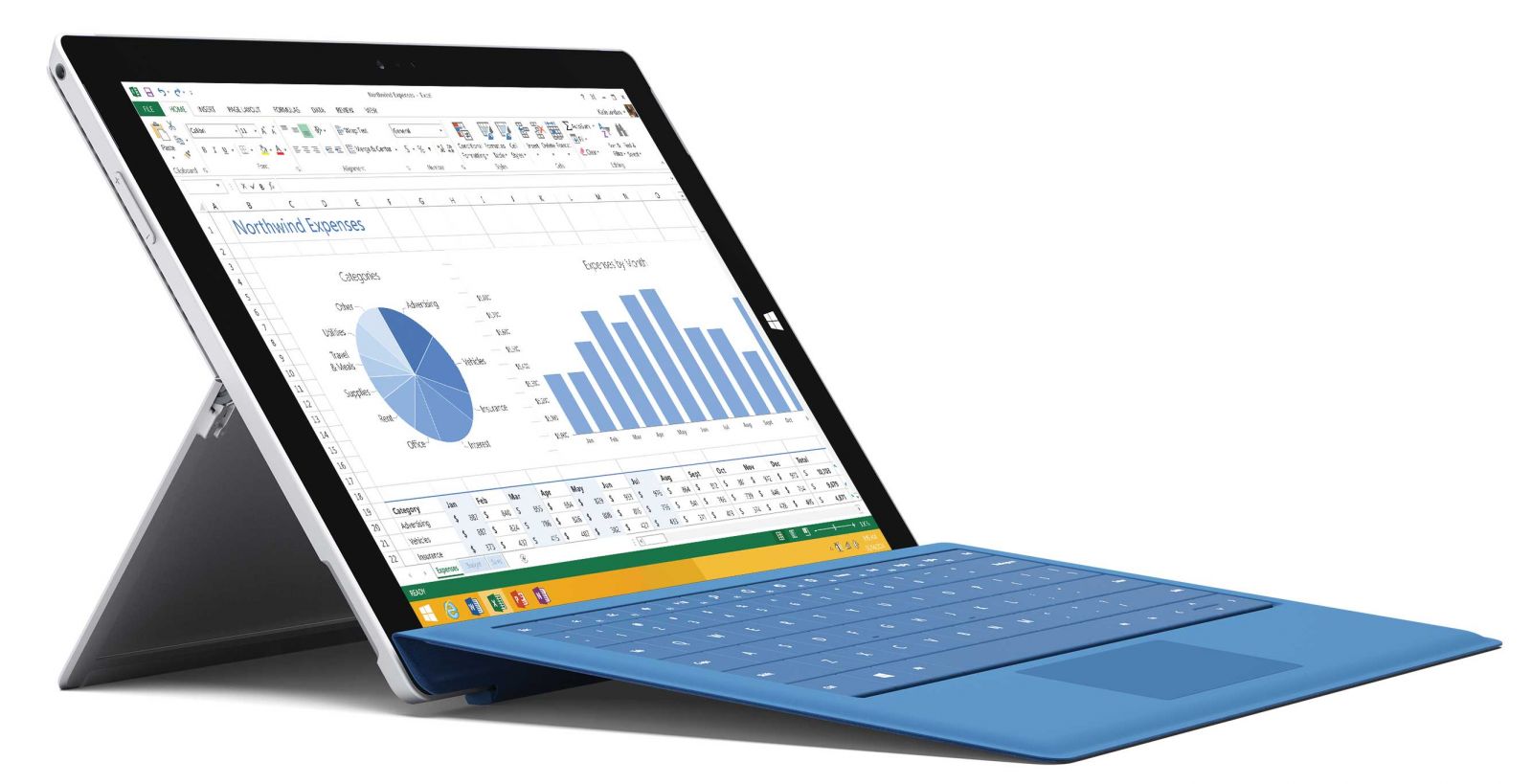
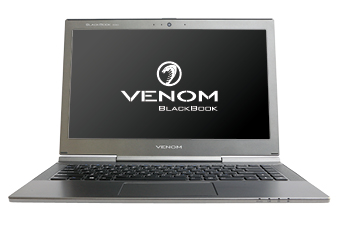
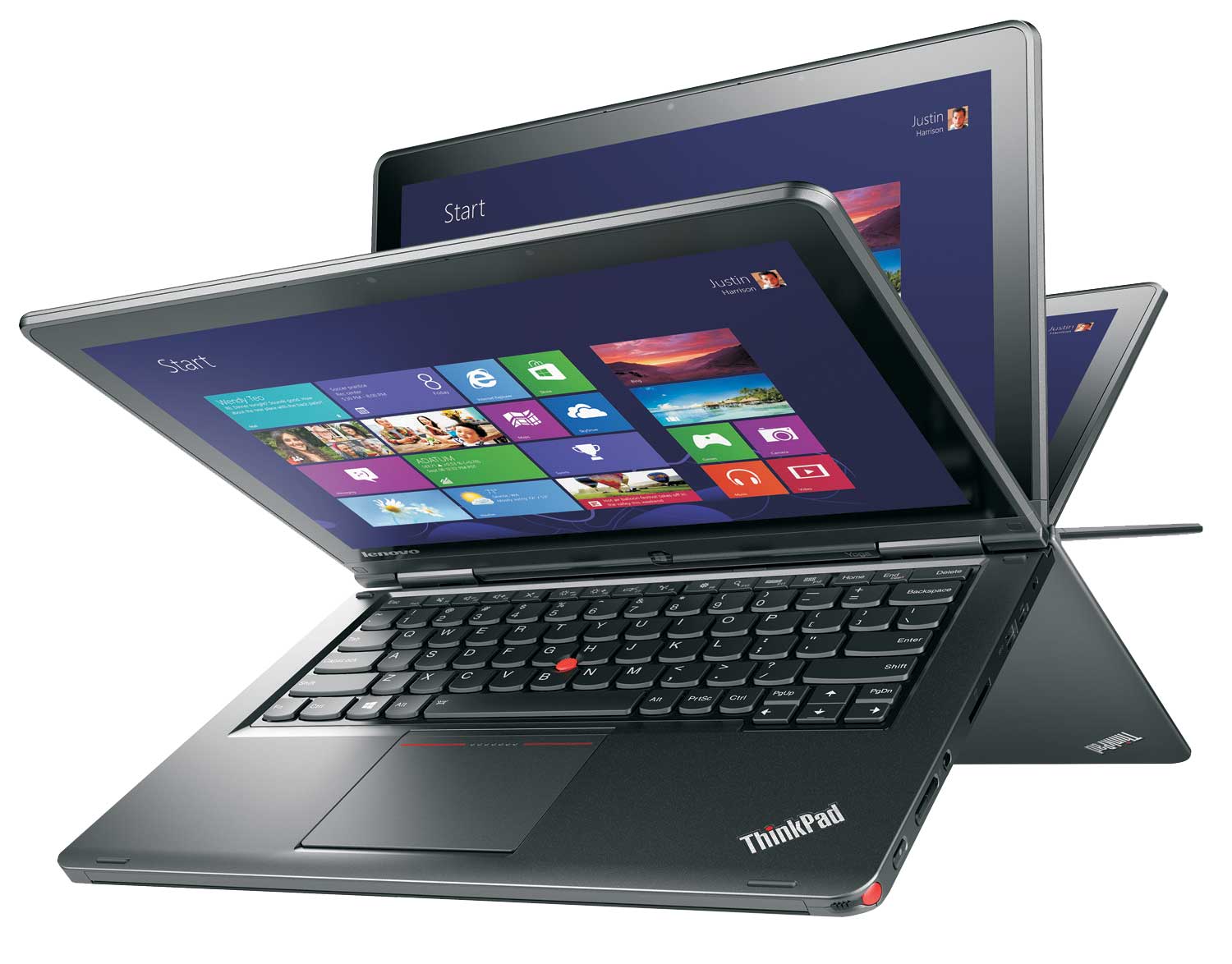
Quality of the screen: What is the most important component in a laptop? If you said the processor, you are not right. The most important component in a laptop is its screen. This is because the screen is something that is going to define your computing experience. It is your window into the computer and the work they do. A bad screen means a poor experience.
Unfortunately, it is rather difficult to find laptops with good screens. Blame laptop manufacturers for this. They often hype processors but ignore screens. This is because it is very hard to market a good screen and the manufacturing cost can increase the overall price of the laptop immensely.
If you are spending a lot of money on your laptop, try to get a laptop that has an IPS screen. Most laptops have TN panel screens. What is the difference? Here is an easy way to understand: Have you noticed that your photos look better on a Galaxy tablet or on iPhone compared to how they look on most laptops? That is because most tablets and phones use IPS screens. Small IPS screens are cheap. As they become larger they tend to cost more. There is more to good screens than just IPS panels as well. If you talk to one of us we can also gladly explain.
Visit our showroom or give us a call and check out the specific laptop model you have in mind. You can carry a USB pen drive full of some colourful photos with you. Plug this into the laptop and see how the colours look for a comparison to what you are used too. Do the colours in your photographs look faded or do they look vibrant? Vibrant colours are good. Also, tilt the screen, move the laptop, change the angle of your view, and see how fast colours fade or darken. If the colours do not change much, the laptop has a good screen.
Equally important is the brightness of the screen, particularly if you are going to use the laptop outdoors. Ideally, a 60 per cent brightness level should make the laptop screen look good. If you have to bump up the brightness to 80 or 90 percent, the screen is not bright enough.
A touch screen may sound like a great feature, however touch screens tend to offer less colour accuracy and are always reflective, this can be an annoying side effect of the touch screen and greatly diminish your productivity. There are also other factors, such as actual usage scenarios, like will you use it on a 15” laptop, as the screen will sit even further away from you?
Finally, watch out for the resolution of the screen. Higher resolution screens make images and text look sharper. Ideally, go for a laptop that has a 1080P (aka Full HD or FHD) screen as a minimum. QHD, QXGA+ (3K), WQUXGA (4K) screens are also great, but depending on the usage requirements and screen size, you may find it harder to actually see what is displayed. It is important for you to understand that a higher pixel density does not always translate to a better usage experience. Too much detail and too small and fine can also be harder to see and read.
Build quality: Do not go by the looks. Pick up the laptop and see how it feels in your hands. Is the plastic used in it good? Is it sturdy? Does it flex when held in one hand? Do the screen hinges feel durable? Inspect the finish of the laptop. The build quality of a laptop is very important because that will determine how long it is going to last. Ideally, go for laptops that have bodies made of metal like aluminium or magnesium alloy. Carbon fibre bodies are also fine. However, these come at a price. If you are looking for plastic body laptops, go for those that feel sturdy and have impeccable finish.
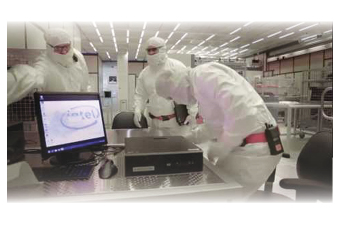
Keyboard and touchpad: These are two very important parts in a laptop but often overlooked by consumers. Good laptops have typing keys that are firm, and most importantly, responsive. They do not rattle and give a kind of clicky or pushy feedback when they are pressed. In addition, the keyboard should not flex and the size of keys should be big enough to make typing comfortable. Ideally, type 100 to 200 words on a laptop that you want to buy to get a feel of the keyboard. Buy it only if the keys feel right to you.
Backlit keyboards, unless put into a laptop that has the required depth (z height = thickness of the base), will always feel spongy or too short when depressed. In thinner laptops, when the keyboard is backlit, the typing experience is also compromised. Only opt for a backlit keyboard if the Z height of the computer is higher than normal and the thickness is not that much of a concern. This usually becomes a concern in a 14” laptop and below.
The touchpad in a laptop needs to be responsive. It should make the cursor on the screen move smoothly when you use it. It should feel smooth and responsive to your fingers. Remember you can always adjust the sensitivity and speed in Windows, so do not judge the touchpad with Microsoft’s standard settings straight out of the box. A good quality keyboard and touchpad is often a sign of the overall quality of the laptop. There is a chance that if a laptop has a good keyboard and smooth touchpad, it is likely to have a good overall quality build.
Speakers: Before you a buy a laptop, go to a store with a pen drive full of your favourite songs. Play these songs on the machine you want to buy. If your laptop has a good set of speakers, it will help you enjoy YouTube videos. Don’t you want that? Usually laptop computers offer poor quality sound and only the top end of town can offer high quality native sound. External speakers or headphones are usually a must.
Battery life: This is very important. It pretty much counts for everything if you are in the 2kgs and below range. What use is a super portable machine that only offers limited battery life? Go for laptops that offer better battery life. Talk to us about manufacturer claimed battery life. Battery life is always controversial and it is important to understand how the stated battery life is achieved; similar to how fuel consumption is measured in a car. Still, if someone claims to give 10 hours battery life in a laptop, it is likely that the machine will last for at least 8 hours. Battery life will greatly affect the overall cost of the computer, as long battery life means the computer is usually smaller, which means it uses higher end components that cost more and are more energy efficient. The flip side to this is, the longer the battery life the less performance orientated the laptop is. In the same way the faster a car is, the more fuel or energy it consumes. Efficiency is the key here.
Battery lifespan: Usually a battery will last for about 18 months to 2 years, and then its overall capacity will diminish. This applies to all rechargeable batteries, not just laptops. Ask us, can this battery be replaced? How much will it cost? Will I have to throw this laptop away once the battery dies? Remember, all rechargeable batteries are consumable and they will eventually die.
Weight: This is particularly important if you want to carry around your laptop. Go for lighter laptops (under 2kg) if you are going to carry it in your bag. 1.5 kgs and below is for the mobile warrior, 2kg is for portability, 2.5kg will give you some mobility, and 3kgs plus is where you have a portable computer. Going from 1.5kg to 2kg and vice versa will not make that much of a difference in your overall mobility and experience.
SSD or embedded flash storage: If you do not need tons of storage (hint: you do not if you are not going to store movies or many large applications) go for laptops that have SSDs (Solid State Drive). An SSD really makes a huge difference to how well a laptop responds. A laptop with a Core i3 processor and an SSD will feel faster compared to a laptop with Core i7 and a 1TB mechanical hard disk. If an SSD equipped laptop is out of your budget range, go for a machine that has embedded flash storage (around 20GB or more). The embedded storage helps laptops feel faster. This type of laptop will not be as fast as one with an SSD, but it will be a good choice. SSD storage comes at a premium, but some manufacturers have the perfect balance between price and efficiency. Speak to us about the varying options.
Warranty: This is a big one. Most laptop parts come from the same factory. The best machines and the cheapest machines all use common parts from the same factory, so a major factor in deciding what brand to buy comes down to an individual brand’s warranty. This is ever changing. Some companies that used to offer excellent aftersales warranty and service may no longer do so, due to factors like overseas management, outsourced call centres, cost cuts, or lack of focus. Therefore, your previous experience may no longer be applicable Talk to us about your laptop’s warranty. We have a good idea on who is doing what and in some instances we may be the authorised service agent for that particular brand. This will make all the difference in your after-sales support.

One last thing: When it comes to buying a laptop, don’t go by the specification sheet. You would never buy a car based on the specifications sheet. Go by what you see, feel and what you can understand. Ask more and more questions. The more we know about your expectations and requirements the better we can provide you with a fitting match. The components like the screen, keyboard, touchpad and the laptop body that you can see are usually more important than the digital specs on paper. The internal hardware is more or less the same in most laptops, from the cheapest Acer or MSI laptop, to the mid-range ASUS, HP, Toshiba, Lenovo laptops, or the higher end of town like Venom or Apple laptops.

While there is never exactly the perfect device that will suit everyone, there is always the right device that will suit you. Your iPad, iPhone, Galaxy device or smartphone, will do most basic computing tasks best, such as internet banking, social media updates or catching up on the news. When real computing tasks are required, a good mid to high end PC will give you the best usage experience in doing those additional things that a basic PC or a high-end tablet/phone cannot do. The PC can be driven by the end user to do limitless tasks and provide endless possibilities; it is just a matter of matching the hardware with the user to ensure you are empowered to make a difference in the digital frontier.




